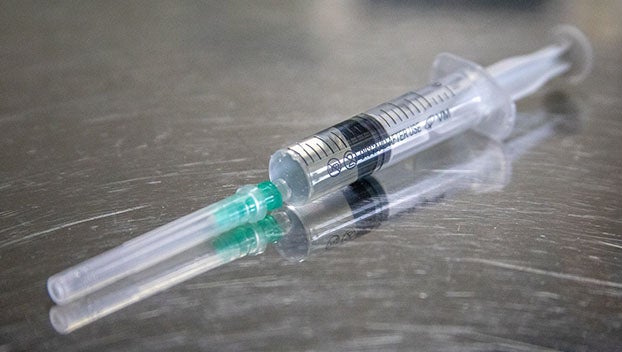Delta COVID variant in Virginia
Published 11:27 am Thursday, June 24, 2021
|
Getting your Trinity Audio player ready...
|
Health officials are concerned localities lagging behind in vaccine rates may be headed for trouble as the B.1.617.2 (Delta) COVID-19 variant takes hold of the U.S.
The Delta variant, which made headlines in previous months as it wreaked havoc in India, is estimated to have a transmissibility rate between 40-60% greater than current leading coronavirus strains in the U.S.
In Virginia, public health officials predict the Delta variant will quickly become the most common variant in the state as it overtakes the dominant U.K. variant.
Although COVID cases have dramatically lowered in recent months, officials say counties with low vaccination numbers may be particularly vulnerable.
On Monday, June 21, Virginia Gov. Ralph Northam announced 70% of adults 18 years and older in the commonwealth had received at least one dose of a COVID-19 vaccine, according to data from the Centers for Disease Control and Prevention (CDC).
The Virginia Department of Health (VDH) reported 50% of Virginians were fully vaccinated against COVID-19 as of June 21.
While it’s good news for the commonwealth, many local, rural counties are nowhere near those numbers.
Currently, Charlotte and Lunenburg counties have inoculated 35.8% and 37% of their populations, respectively.
Prince Edward County sits in the lowest percentile of Virginia counties in terms of the number of residents who are fully vaccinated at 31.9%, also the lowest figure in the Piedmont Health District.
In Buckingham County, 36.8% of residents are completely vaccinated. Cumberland County has fully vaccinated 35.1% of its citizens.
On Monday, Piedmont Health District Senior Epidemiologist Rhonda Pruitt noted while no cases of the Delta variant have been detected in the health district thus far, 41 cases have been discovered in Virginia.
Last week, the CDC upgraded the Delta variant from a “variant of interest” to a “variant of concern.”
Pruitt said while there is no current evidence the variant is causing more serious illnesses than other COVID variants, health officials are still studying the variant’s true transmissibility rate and monitoring its severity.
She added it appears there is a possibility antibodies generated with vaccines and from previous COVID-19 cases protect against the variant, but this, too, continues to be closely studied.
Currently, Pruitt added, the VDH State Public Health Lab is able to conduct whole genome sequencing for the Delta variant. Other labs have partnered with the VDH State Public Health Lab to send a portion of their own tests in for sequencing.
However, only certain COVID-19 tests are also tested to determine the variant associated with the test.
On Monday, Pruitt said localities with lower vaccine rates are vulnerable to this highly-transmissible variant of the virus.
“Whenever you have an unvaccinated area, those folks are more particularly vulnerable.”
Pruitt said although the first cases discovered in Virginia were found to mostly be associated with those who had recently traveled to India, health officials are now seeing more and more cases of community transmission of the Delta variant.
“So what we expect is this probably will over the next couple of months be the predominant strain to circulate in the United States.”
Pruitt said the Delta variant’s appearance in the commonwealth serves as an opportunity to remind those 12 and up who are eligible for the vaccine to seek vaccination.
“We are not out of this yet,” she noted.
She added as the summer months approach and social distancing/masking restrictions are lifted, people are more likely to engage in large gatherings. For those who haven’t received a COVID shot, close quarters compounded by such an easily transmitted variant could mean trouble.


